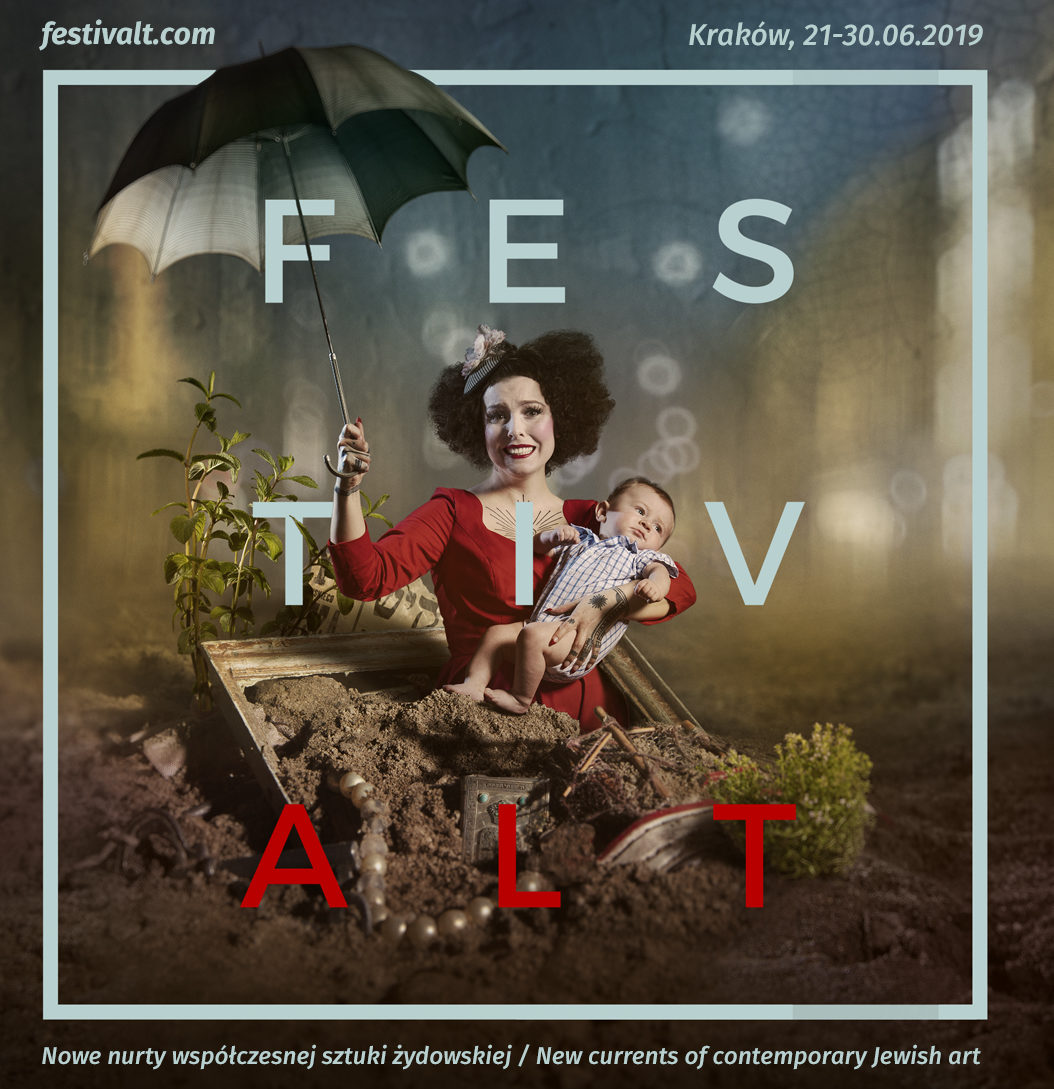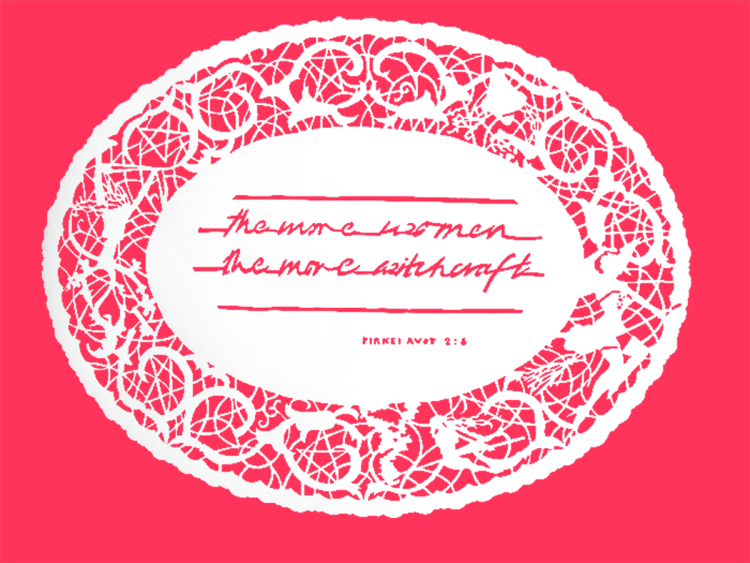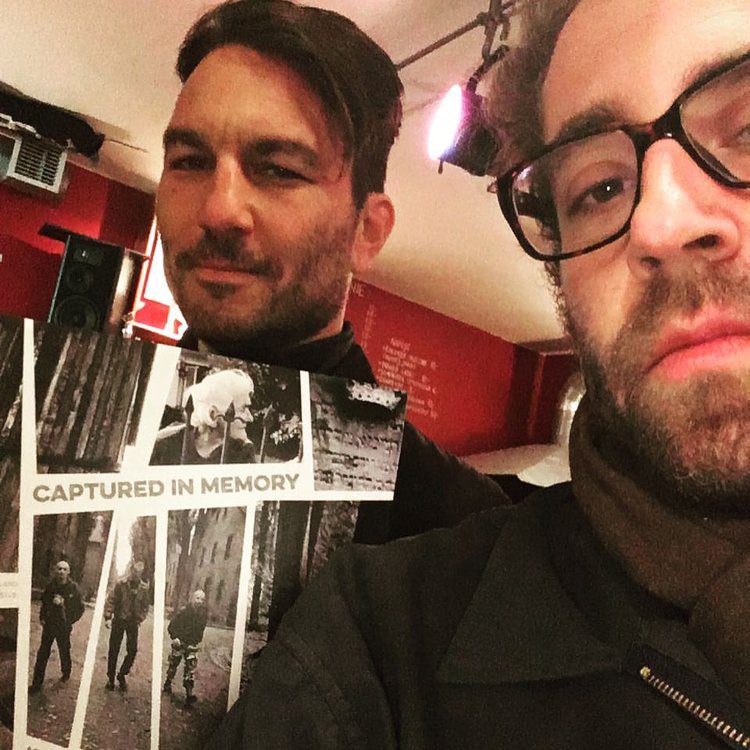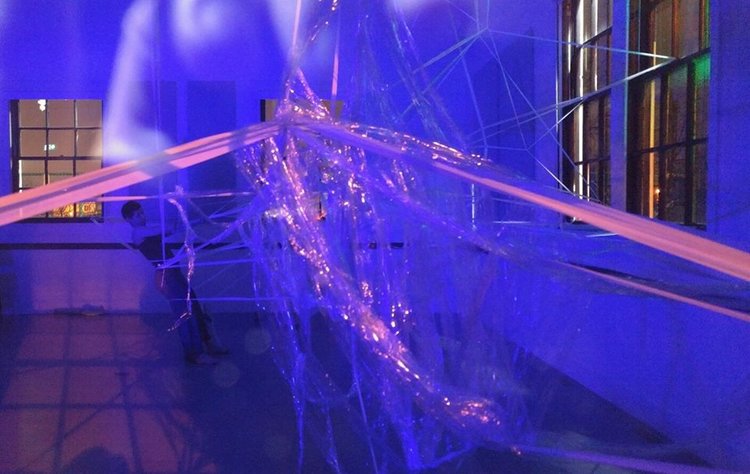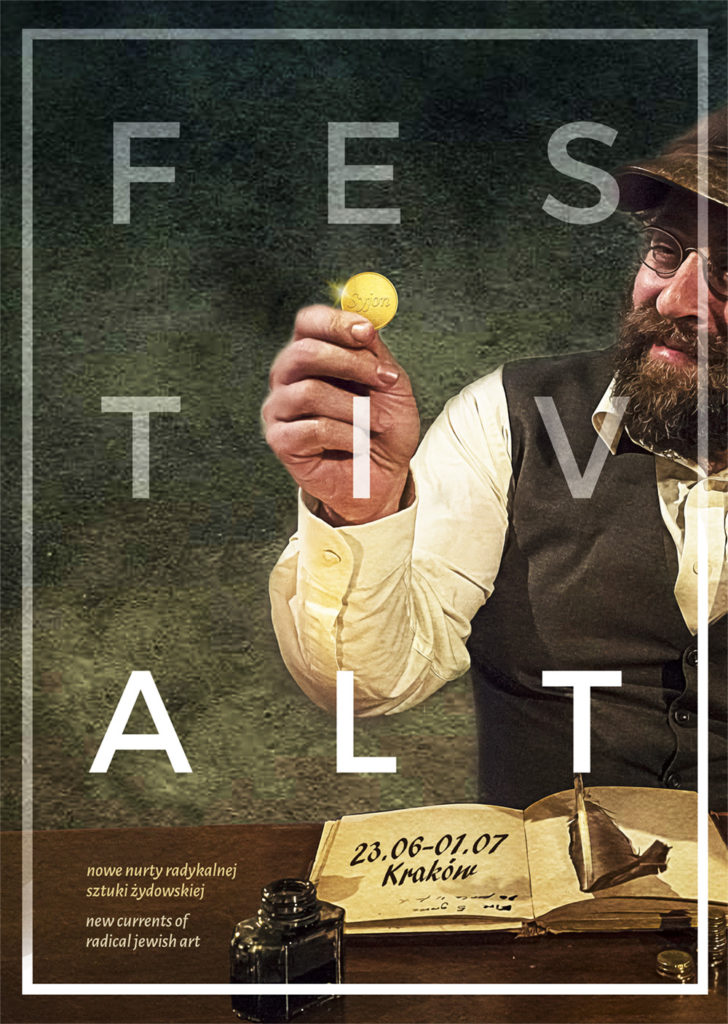
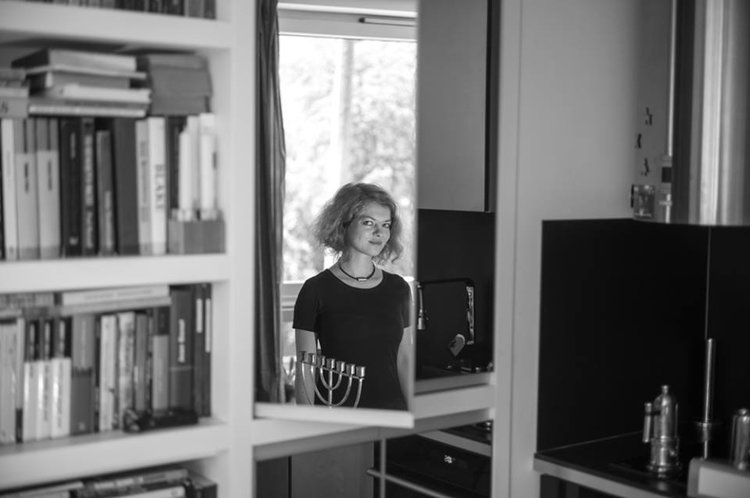
As a narrow bridge between the yesterday and today of Jewish life in Poland, for decades Kazimierz has been a key point for artists and writers seeking to understand the Jewish in postwar Poland. Over the last decade, the Swiss photographer Paul Schneller has investigated the complexities of Jewish life in Kazimierz, with particular attention to the elusive and hard-to-define dimensions of Jewish life and community. This year we showcase a preview on the project, in anticipation of his coming publication in the next year.
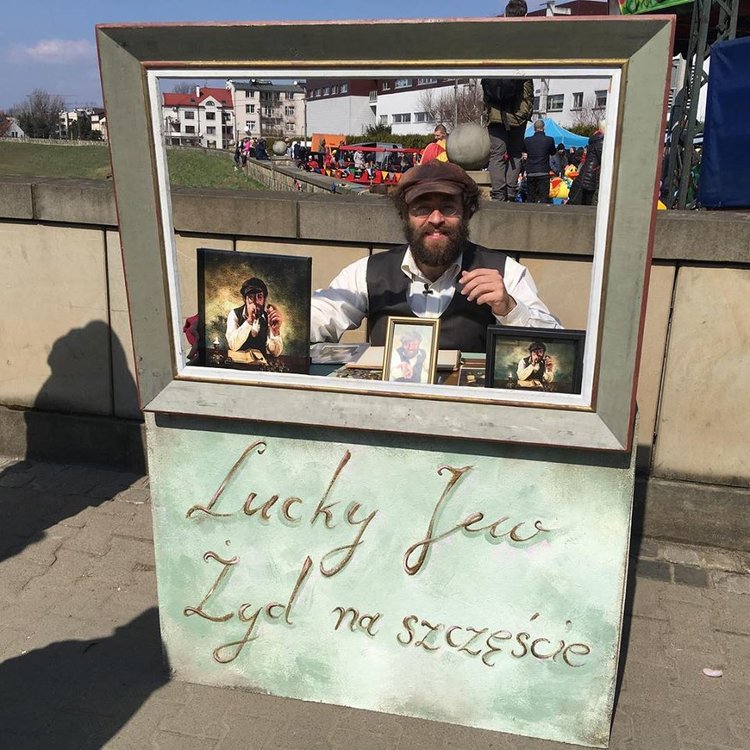
With origins in the material culture of pre-war Poland, Lucky Jews are small figurines or painted pictures of Jews with one or more coins. Though they may look like antisemitic caricatures to Jewish eyes, they are still widely bought and sold across Poland as good-luck charms. FestivALT’s performance brings the figurine of the Lucky Jew to life. For several afternoons, a live Lucky Jew will appear in the public space of Kazimierz to sell self-made lucky images of himself to all who desire 100% luck from a real-live 100% Jew. This piece premiered at the inaugural edition of Festivalt in 2017, and is described in Jason Francisco’s photo-text essay. The second edition was during the Emaus Easter Festival Market, where all items for sale were purchased in less than 3 hours.
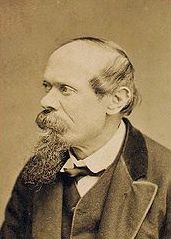
Ignacy Krieger is widely recognized as the most important Kraków photographer of the 19th century. Krieger’s work made key visual contributions to Polish national self-consciousness during the Partition period, analagous to those of Jan Matejko, Krieger’s close contemporary. Much less remembered – almost forgotten – is that Krieger was a Jew, a hinge figure between majority and minority communities and consciousness. As part of the Dietla Street Fest, we will present examples of Krieger’s art, and the chance to look at contemporary Dietla using the same kind of photographic equipment that he himself used.
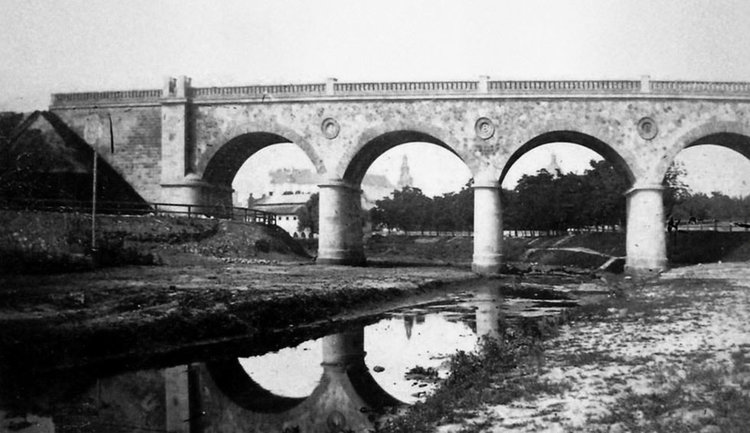
For centuries, what is today Ulica Dietla was a tributary of the river Wisła, a defining feature of the city’s natural ecosystem that also served as a ready administrative divider between Kraków and Kazimierz. With the opening of Ulica Dietla in 1880, the formal division disappeared, and the two districts were joined into a single urban environment. As the river’s flow gave way to a traffic flow, Jews––who had never completely disappeared from central Kraków––began to relocate and expand their homes and businesses along and across Dietla, into the Stradom district and the Main Market Square. In contemporary Kraków, however, memory has been largely resegregated: Kazimierz is Kraków’s Jewish-designated space, and the rest is Polish. We at FestivALT believe this division is about as plausible as a boat sailing down a disappeared river — which is precisely what we will be doing as a durational performance work on Sunday, June 24th, on Dietla.
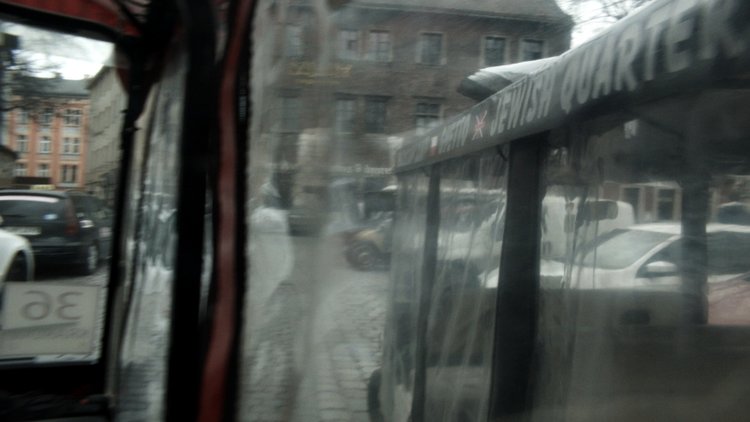
Kraków’s Kazimierz district has undergone extensive gentrification and touristification in the last 15 years, including tours conducted in small golf cart-like vehicles that blare out recorded audio tracks in any of several languages. This performance piece will take place in such a vehicle, which will offer alternative tours of Kazimierz. The narratives are not limited to a recitation of dry, and sometimes false, historical facts, but explore the real complications, controversies and cultural confusion of contemporary Kazimierz. Tours will be made by Jason Francisco – narrated by Alex Poch-Goldin (EN) / Kuba Szatko (PL), Menachem Kaiser – narrated by Michael Rubenfeld (EN), Adam Schorin – narrated by Adam Schorin (EN) and Betty Q (PL) and Paulina Skotnicka – narrated by Maja Luxenberg (PL).
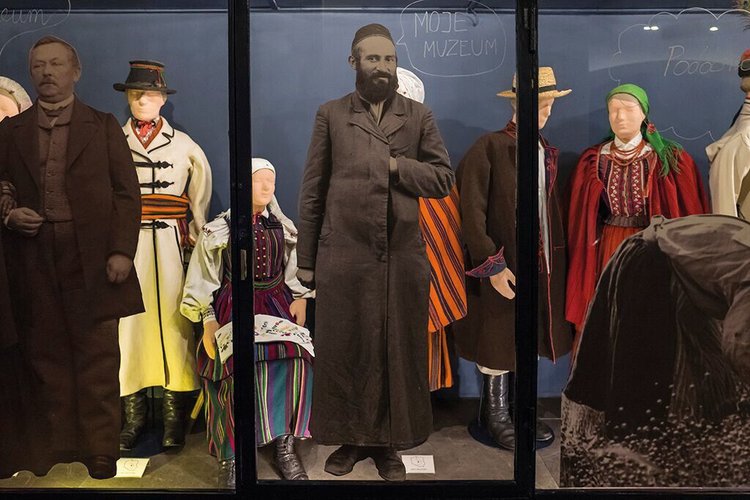
At this time last year, professors Erica Lehrer (Concordia University) and Roma Sendyka (Jagiellonian University) worked with Polish Studies students in collaboration with Magdalena Zych, curator at the Kraków Ethnographic Museum (MEK), to intervene in the museum’s approach to Poland’s folk culture. Their goal was to bring the ethnic diversity and “difficult knowledge” of village life back into view. Lehrer and Sendyka will present their forthcoming book about the intervention, with photos by Jason Francisco and contributions from students and others, and discuss it with MEK curators and participants in the experiment.
Free Entry
The event will be followed by a hummus reception sponsored by Amamusi
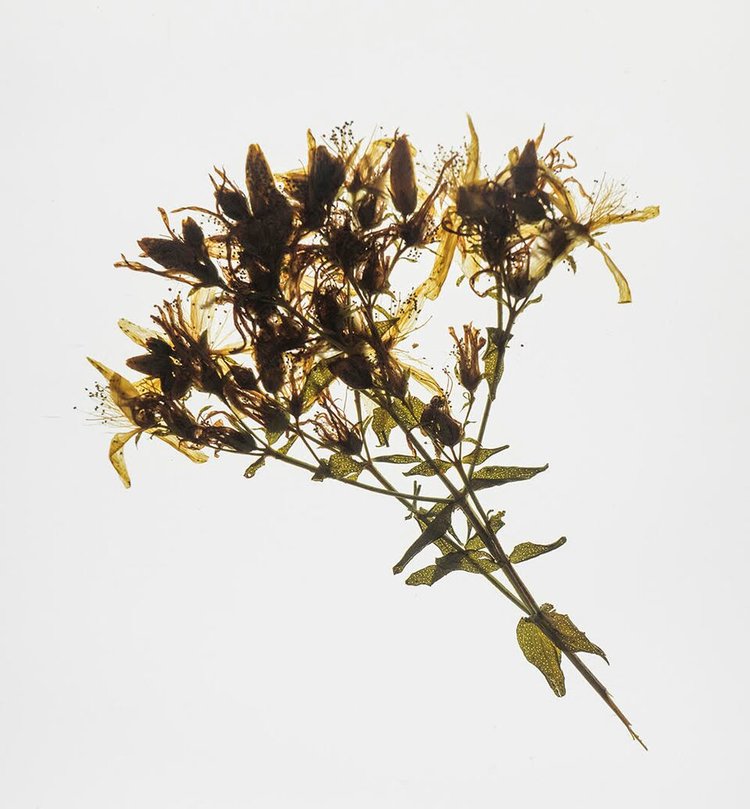
The former Nazi camp KL Płaszów, a vast area in the Podgórze district of Kraków, is the city’s most notorious Holocaust site––today a no-man’s land which functions as a recreation area for local residents. The use and misuse, remembering and forgetting of Płaszów’s history has preoccupied artist Jason Francisco for years. “The Medicinal Plants of Płaszów” is an experimental work of historical memory, created in response to the question, “What forces of healing is Płaszów itself generating?” As it turns out, the genocidal earth of Płaszów grows all manner of plants from which actual medicinal tinctures, teas and compounds can be made. During FestivALT, we will dedicate a new community garden of medicinal plants harvested from the former camp, plus Kraków’s first long-term exhibition about the complications of the Płaszów site. In addition, FestivALT will host a historical/botanical walking tour of Plaszów.
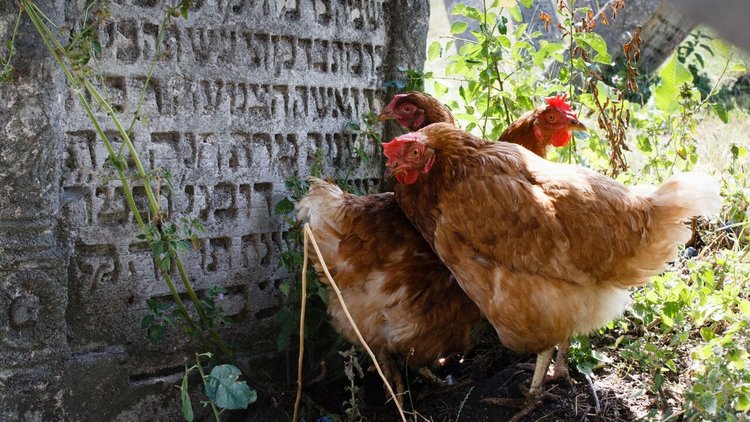
Two-part work by FestivALT’s artist-in-residence Asya Gefter. Part one is a photo-video-sound investigation into once-Jewish worlds in what was formerly eastern Poland, following quite literally in the footsteps of the artist’s muse, the great prewar poet and writer Debora Vogel. The second part is an open studio where Gefter will be living and working throughout the duration of FestivALT, in which she will be creating on the next stage of the work, concerning her own lost and elusive family stories, and the somatic impact of silence and repressed history on her own body.

For a second year, FestivALT will stage a peaceful intervention as an act of ongoing protest of the treatment of the Chevre Thilim building, which is now inhabited by a bar who destroyed the original Aron HaKodesh (Ark for the Torah) to put in a doorway. It has been tastelessly re-named Chevre as an exploitation of its original name. The intervention’s aim is to insist on the non-conformity in and around how we are using Jewish space and memory in Krakow for the sake of commodification.
